Classic Couple Exclusive: Interview with George Stevens, Jr.
George Stevens, Jr. is many things. He is a steward of American cinema and cultural history. He is a director, writer, producer, and playwright. He is the founder of the American Film Institute and creator of the AFI Life Achievement Award and the Kennedy Center Honors. He is an advocate for social justice and civil rights, known for bringing the stories of outsiders to the screen. And he is the son of renowned Hollywood director George Stevens.
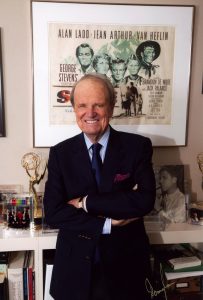
Credit: Philip Bermanham
His awards and honors include fifteen Emmys, eight Writers Guild and two Peabody Awards, the Humanitas Prize, the Spirit of Anne Frank Award, an NAACP Legal Defense Fund Award, and an Honorary Academy Award in 2012. As a filmmaker and as a public servant, George Stevens, Jr. has made his life not about his own fame and fortune, but about shining the spotlight on others.
Now, in a riveting memoir, he shares behind-the-scenes stories of the people and places comprising some of the most significant cultural and political events in American history. Before the release of My Place in the Sun: Life in the Golden Age of Hollywood and Washington, broadly available May 17, 2022, Classic Couple sat down with George Stevens, Jr. during the TCM Classic Film Festival. Our chat follows.
Classic Couple: On April 22,2022 during the TCM Classic Film Festival, you stayed for entire screening of Giant (1956) in the TCL Chinese Theatre IMAX. What were your impressions of watching Giant on the big screen with a large audience?
George Stevens, Jr.: It was a joy to see it with a big audience. To be with over 800 people and to hear so much laughter at a scene that catches them by surprise was wonderful. The family scene where the children come to Thanksgiving dinner and they recognize Pedro, you just don’t see that so much anymore in films. It’s not jokes that get the audience, it’s the situation.
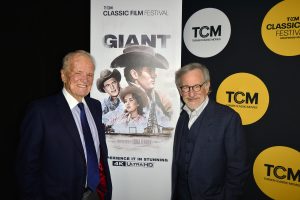
Credit: Jerod Harris/Getty Images for TCM
For me, one of the great lessons of working with my father was respect for the audience. Nowadays, that studios often say the audience has a mentality of 14-year-olds and we’ve got to play down. My father had the opposite feeling—that you had respect for the audience and let them bring something to the movies. Let them discover and bring their own knowledge and sensibility. And I really felt that again, watching Giant—that you must leave something for the audience. It’s not all spoon fed. I love that.
Classic Couple: While watching Giant on the big screen did any memory come up for you of the experiences that you had working on the film with your father?
George Stevens, Jr.: In 1956 I was done in the Air Force, and I was home. My father took me to dinner at Musso & Franks. We went across the street to the Egyptian theater, and I saw James Dean come on the screen with this kind of cat-like walk. My father was thinking of him to play Jett Rink, and he had been talking with Richard Burton and Robert Mitchum. Somehow, he thought that this is an actor who will bring something to the film.
Jimmy was 23 when he was cast to play Jett Rink, a character that would have to play into his 50s. And, of course, Jimmy was wonderful. Sadly, it was his last film.
Classic Couple: With your book coming out, what is one—of many within—surprising story to share with classic film fans?
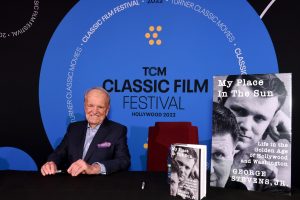
Credit: Vivien Killilea/Getty Images for TCM
George Stevens, Jr.: I write about the famous scene in Shane, where Jack Palance guns the little Southerner down in front of the saloon. The fella comes walking up to the saloon and balances there on the steps in front. They buried a mattress under the mud, and my father made them water and water and water the street. They put a harness on Elisha Cook Jr. with a wire on it for three prop men to handle when he was shot. He didn’t fall forward the way they did in movies until then. He was pulled back into the mud, flattened. Of that Sam Peckinpah said that shootings and the movies changed after Jack Palance shot Junior in Shane.
Classic Couple: You dedicate the book My Place in the Sun to your father and your son Michael. How is this a father-son story?
George Stevens, Jr.: I was so influenced by my own father. And then I had the pleasure of having two sons and one of them, followed in the same career. So, it is very much a story of fathers and sons.
It is also the story of remarkable women. My great grandmother was an actress on the stage in San Francisco and toured the country. She was the youngest Ophelia to Edwin Booth. She started five generations of Stevens in show business.
So, it goes back to her, and I come by it honestly.
Classic Couple Recommends
Buy the Books!
My Place in the Sun: Life in the Golden Age of Hollywood and Washington memoir by George Stevens, Jr.
Conversations with the Great Moviemakers of Hollywood’s Golden Age at the American Film Institute, by George Stevens, Jr. An unmatched history of American cinema in the words master moviemakers including Frank Capra, Elia Kazan, King Vidor, David Lean, Fritz Lang, William Wyler, and George Stevens in a compilation of interviews from the American Film Institute’s renowned seminars.
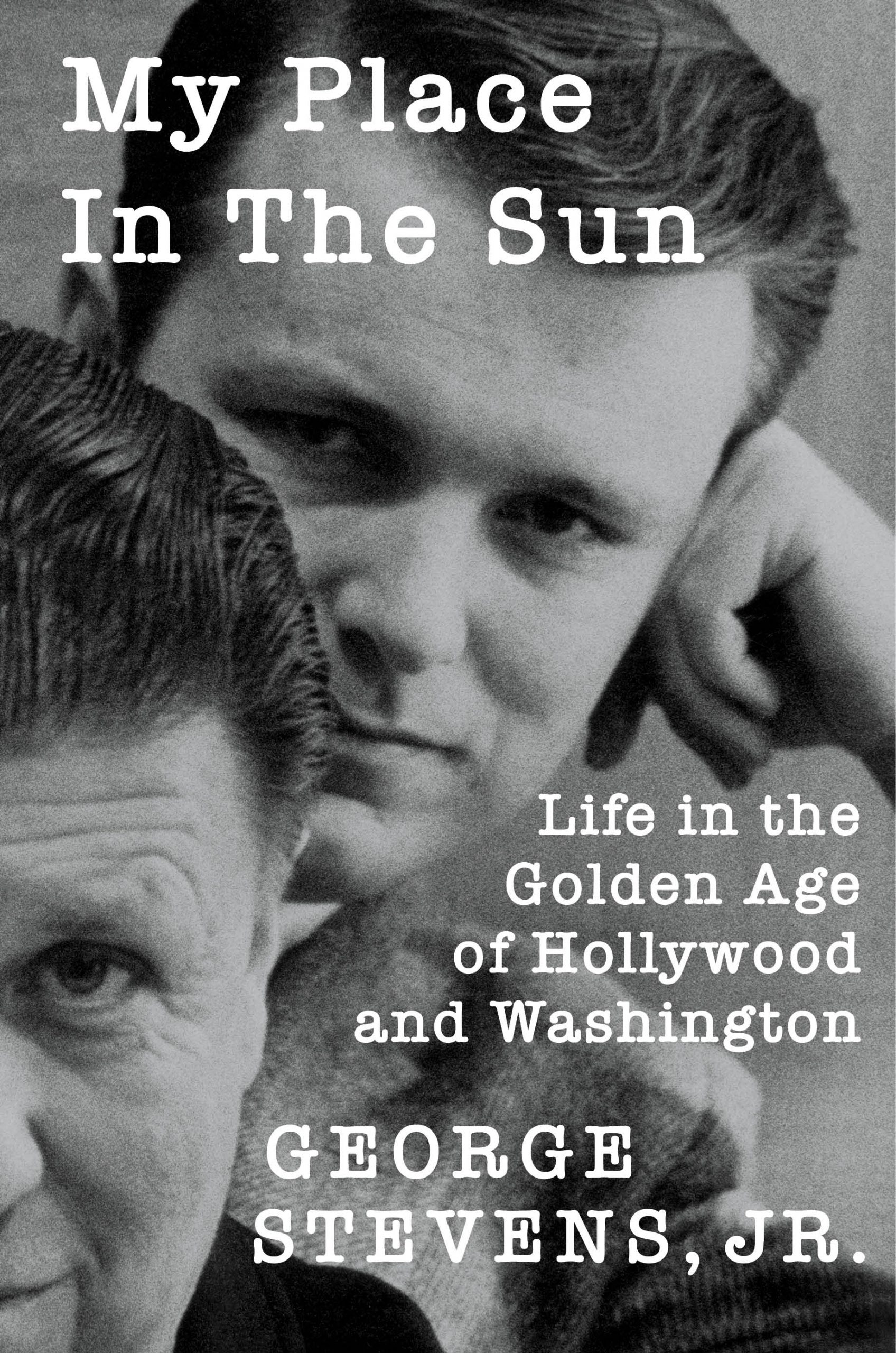
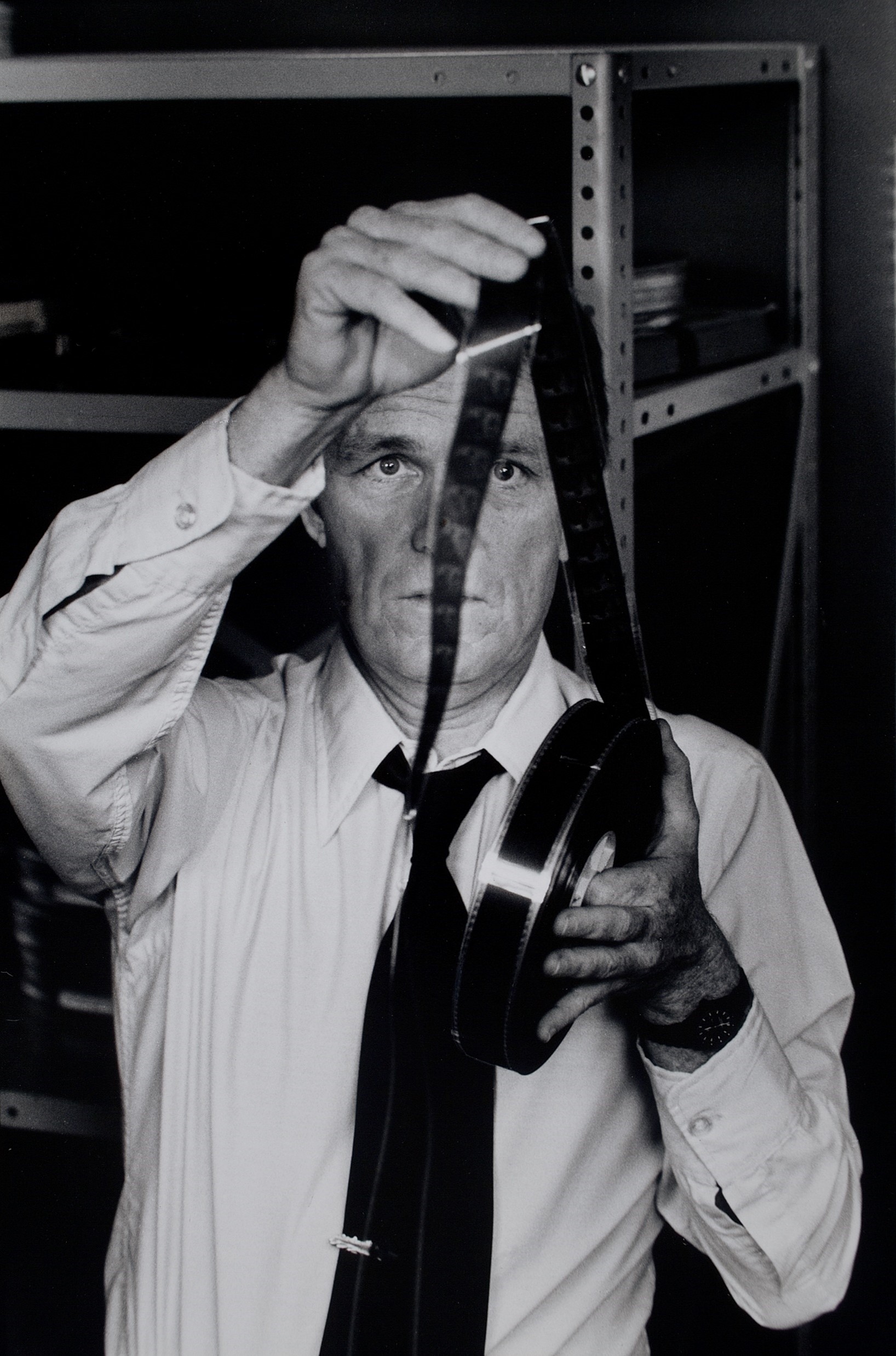
Credit: Diana Walker
